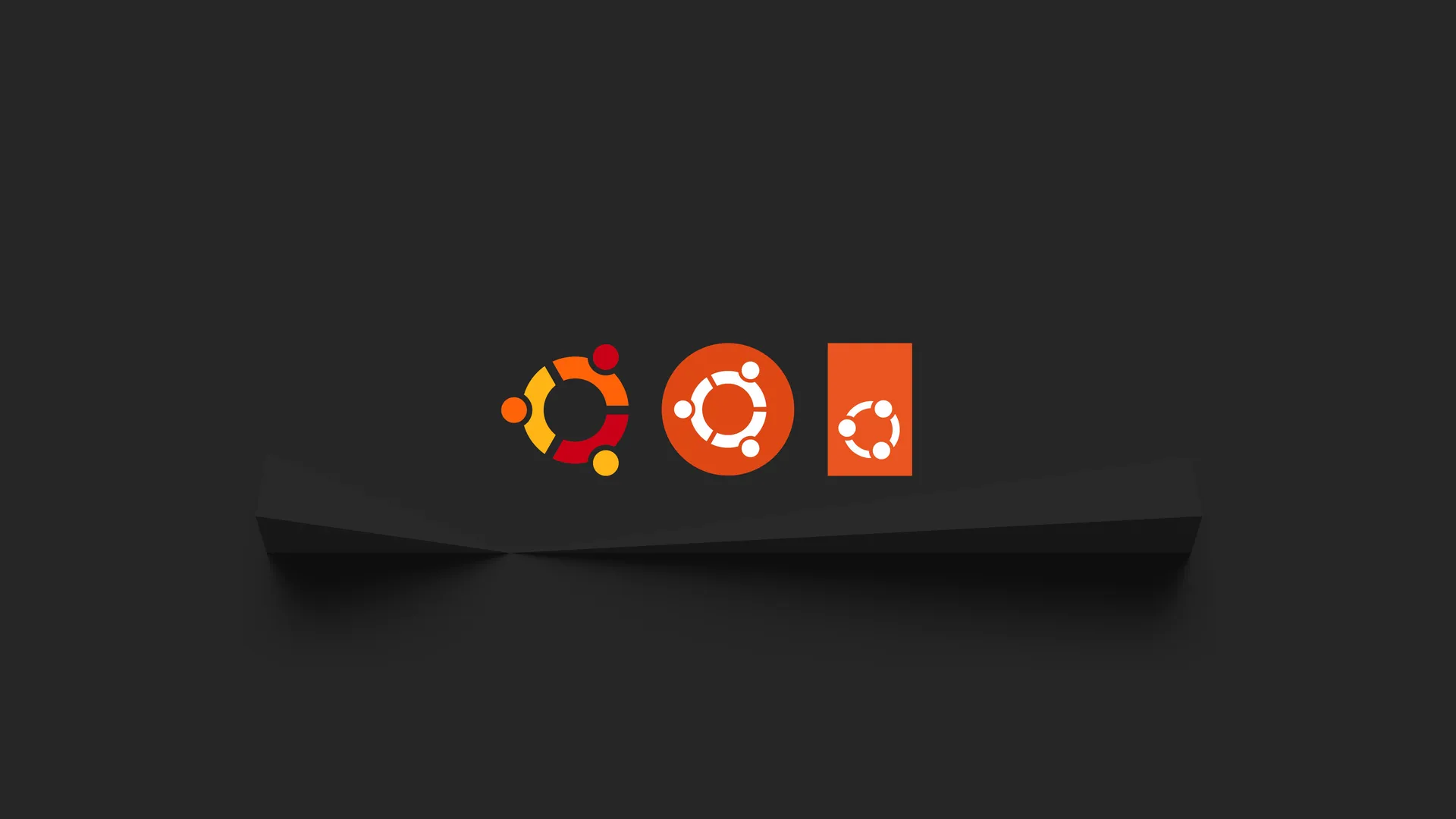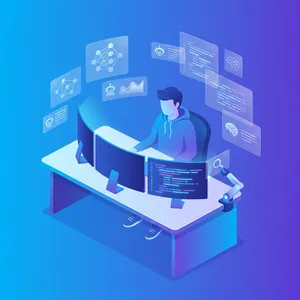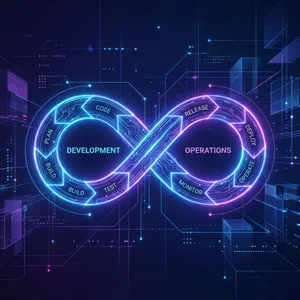Linux for Developers: Why I Use Ubuntu (and Why It's a Game-Changer for Your Career)
A personal reflection on why Ubuntu became my daily driver, and how switching to Linux can accelerate your career as a developer, DevOps engineer, or CTO.

Sariful Islam

I still remember the first time I installed Ubuntu 6 years ago. It was a dual-boot setup, it was safe, reversible and nothing too risky. I’d keep Windows around “just in case.” But here’s the thing: within two weeks, I stopped booting into Windows entirely. Ubuntu just… worked. And more importantly, it worked the way I thought.
Fast forward to today, as the CTO of Zubizi I am, managing servers, building systems, and leading dev teams. And I’m still on Ubuntu for 99% of my work. Full disclosure: I still maintain that dual-boot setup “just in case.” Because let’s be honest there are some tools that just don’t have Linux equivalents. Photoshop, CorelDRAW, and certain Adobe Creative Suite apps still need Windows or Mac. When I need to do serious design work or collaborate on creative projects, I boot into Windows. But for everything else? Ubuntu is where I live. Not because I’m a purist or because I enjoy tinkering for the sake of it but because it makes me better at my job. It makes me faster, more confident, and honestly, more in control of my work.
If you’re a developer still on Windows or macOS and you’ve been curious about Linux, this one’s for you.
Why Developers Love Linux
Let me be direct: Linux gives you freedom. Not the abstract kind, but the real, practical freedom to do whatever you need without fighting your OS.
Want to automate a task? Write a bash script, drop it in a cron job, done. Need to spin up a MySQL server? One command. Want to customize your terminal, your shortcuts, your entire workflow? Go ahead. No permissions to ask for, no system telling you “you can’t do that here.”
And then there’s stability. My Ubuntu machine runs for weeks sometimes months without a restart. No forced updates during a deploy. No random slowdowns because some background service decided it owns your CPU.
But the biggest thing? The open-source community. When something breaks, the answer isn’t locked behind a support ticket. It’s in a forum, a GitHub issue, a Stack Overflow thread. You learn faster because you’re not just using the system you’re understanding it.
Why I Use Ubuntu Specifically
Sure, there are other Linux distros. Arch is cool if you want to build everything from scratch. Fedora’s solid. But Ubuntu? It just works out of the box.
I don’t have time to troubleshoot drivers or hunt down obscure dependencies. I need a system that lets me focus on building products, not maintaining my OS. Ubuntu gives me that. It’s stable, well-documented, and most importantly it’s what runs on our servers.
When your local machine mirrors your production environment, things just click. I write code on Ubuntu. I test it on Ubuntu. I deploy it to Ubuntu servers. There’s no “works on my machine” syndrome because my machine is the server environment.
And here’s something that still catches me sometimes: I’ll SSH into a production server, start navigating directories, editing configs, checking logs… and I genuinely forget I’m on a remote machine. The commands are the same. The file structure feels familiar. The whole experience is identical to my local setup. The server feels like home. That level of comfort isn’t just convenient it means I can work confidently and quickly when it matters most.
Plus, the LTS (Long Term Support) versions mean I’m not constantly upgrading or worrying about breaking changes. I can stay productive for years on the same setup.
The DevOps Advantage (And Why Your Career Needs This)
Here’s something they don’t tell you in bootcamps: most of the web runs on Linux. AWS? Linux. Google Cloud? Linux. Your company’s backend servers? Probably Linux.
If you’re a developer who wants to move into DevOps, backend engineering, or leadership, you need to understand Linux. Not just conceptually you need to be comfortable in a terminal, managing processes, editing config files, setting up cron jobs, using rsync for deployments.
When I interview developers, I always ask: “Are you comfortable SSH-ing into a server and debugging a live issue?” The ones who say yes confidently? They’re almost always Linux users.
Using Ubuntu daily means I’m practicing these skills constantly. I’m not “learning DevOps” I’m just doing my job. And when something goes wrong on a production server at 2 AM, I’m not panicking. I’m in my element.
This isn’t about being a sysadmin. It’s about being the kind of developer who can own the full stack from code to deployment to infrastructure.
My Daily Developer Setup
Let me give you a peek into my actual workflow, because this stuff matters.
I use VS Code as my editor yes, on Linux, and it works flawlessly. My terminal is the basic terminal that comes with ubuntu (with vscode theme). I’ve got Node.js installed via nvm so I can switch versions per project without hassle. For PHP projects, I have PHP set up with all the necessary extensions.
For databases, I run MySQL locally when I need it, with phpMyAdmin for a visual interface when I need to manage databases, inspect tables, or run quick queries. Most of the time though, I’m connected to dev servers via SSH. When I need a web server for testing or local development, Nginx is my go-to it’s lightweight, powerful, and mirrors our production setup.
My scripts folder is full of bash scripts and Python scripts that automate repetitive tasks: backups with rsync, log analysis, deployment shortcuts, data processing. For more complex automation workflows, I use n8n it’s like Zapier but self-hosted and infinitely more flexible. I’ve got cron jobs that handle scheduled tasks things that would require third-party tools on other systems.
And here’s the thing: none of this feels complicated. It’s just how I work. The OS doesn’t get in my way. It enables me.
Ubuntu vs Windows vs macOS
Let’s be real for a second. Windows and macOS are great for certain things. But as a developer, here’s how I see it:
Windows is fine if you’re doing .NET or gaming. WSL (Windows Subsystem for Linux) has improved a lot, but it’s still a layer of abstraction. You’re not really on Linux you’re on Windows pretending to be Linux. And good luck when something breaks in that compatibility layer.
macOS is popular in dev circles, and I get it. It’s Unix-based, the terminal is solid, and the hardware and the UI/UX is beautiful. But you’re locked into Apple’s ecosystem. The machines are expensive, you can’t easily upgrade hardware, and you’re trusting Apple to keep things developer-friendly. Plus, servers don’t run macOS. So there’s still a gap between your local and production.
Ubuntu gives you the real thing. The same kernel, the same tools, the same package manager as your production servers. It runs on any hardware cheap or expensive. It’s free, fully customizable, and you truly own your system.
If you’re serious about backend, DevOps, or infrastructure, Ubuntu (or any Linux distro) is the obvious choice.
Getting Started: Tips for Making the Switch
Thinking about trying Ubuntu? Here’s how I’d recommend starting:
1. Dual-boot first. Don’t wipe your current OS. Install Ubuntu alongside it. This gives you a safety net while you get comfortable.
2. Start with Ubuntu LTS. The latest Long Term Support version is stable and well-supported. Don’t go for experimental versions.
3. Use it for real work. Don’t just toy with it. Make it your daily driver for a project. You’ll learn faster when you’re solving real problems.
4. Get comfortable with the terminal. You don’t need to be a command-line wizard overnight, but learn the basics: cd, ls, grep, ssh, apt, systemctl. These are the building blocks.
5. Learn package management safely. Ubuntu uses apt for installing packages. Learn how to search for packages (apt search), read package descriptions, and check reviews/documentation before installing. Stick to official repositories when possible, and if you need to add PPAs (Personal Package Archives), research them first. Understanding what you’re installing and from where is crucial for system security and stability.
6. Join the community. Ubuntu forums, Reddit (r/Ubuntu, r/linux4noobs), and Stack Overflow are gold mines. Don’t be afraid to ask questions (though search if your question has already been asked or not).
7. Embrace the learning curve. Yes, some things will feel unfamiliar at first. That’s not a bug it’s a feature. You’re learning how computers actually work.
Why This Matters for Your Career
When I look back at my career, switching to Linux was one of those quiet decisions that had outsized impact. It didn’t just change my OS it changed how I think about technology.
I became more resourceful. More curious. More confident tackling infrastructure challenges. I stopped being afraid of servers. I started seeing systems as things I could shape, not black boxes I had to work around.
And here’s the honest truth: being comfortable on Linux sets you apart. Not because it’s elitist or gatekeeping but because it shows you’re willing to go deeper. You’re not just writing code, you’re understanding the environment it runs in.
Whether you’re aiming for a senior dev role, a DevOps position, or CTO someday, this matters. The developers who understand the full stack from application code down to the operating system are the ones who build better systems and lead better teams.
Freedom, Learning, and Growth
At the end of the day, Ubuntu represents something bigger than an operating system. It’s about ownership. It’s about learning without limits. It’s about being the kind of engineer who can build, deploy, and scale real systems.
You don’t need to be a Linux zealot. You don’t need to abandon every other tool. But if you’re serious about growing as a developer, give it a shot. Dual-boot Ubuntu this weekend. Spend a week with it. See how it feels.
I think you’ll find, like I did, that it’s not just an OS change it’s a mindset shift. And that shift might just be the best career move you make this year.


